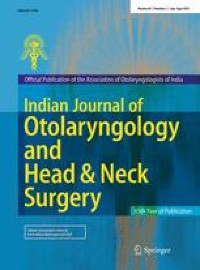Abstract
Hearing is an important sense organ for human beings essential for speech, language and overall development. Universal neonatal hearing screening programmes are mandatory in many developed countries. In India out of 1000 neonates approximately 5–6 infants are diagnosed with hearing impairment but still universal neonatal hearing screening programme is in its infancy. To screen all neonates delivered at our centre in three years, with secondary objective of determining the significance of risk factors with neonatal hearing loss and to provide appropriate intervention following the detection of a permanent hearing impairment. It is a non-randomised prospective cohort study conducted at a tertiary care centre to screen all neonates born between Jan 2017 and Dec 2019 with 2 stage protocol using distortion product otoacoustic emission and auditory brainstem response. The study population was also divided into two groups, ''at risk'' and ''no risk'' g roups to determine the significance of risk factors on neonatal hearing loss. Total 2676 neonates were screened, OAE referral rate was 1.53%. There was a 94.12% follow up. The incidence of hearing impairment was found to be 7 per 1000(In the "no risk" group, 2.9 per 1000 and in the "at risk" group, 41.38 per 1000). Statistically, a significant difference was found in the incidence of hearing impairment between the two groups (p < 0.05, chi-square Test). Hospital based universal hearing screening of new born before discharge is feasible at a tertiary care centre. A high incidence of 0.7% congenital hearing impairment warrants universal newborn hearing screening programme. Considering the limitations and infrastructure in India, we should at least employ screening for all high risk neonates.




Δεν υπάρχουν σχόλια:
Δημοσίευση σχολίου